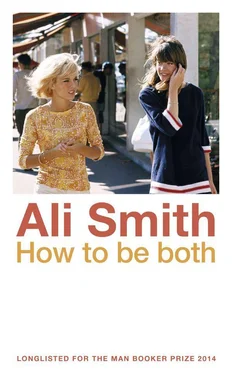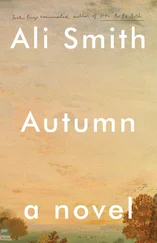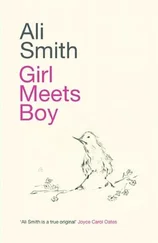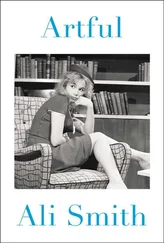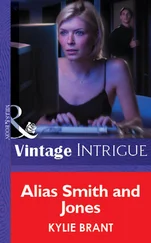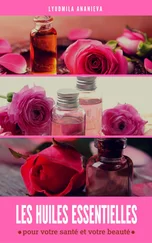(her mother did an art history degree once)
— and as to the constant sexual and gender ambiguities running through the whole work
(and a women’s studies degree)
— at least the part of it that this particular artist seems to have produced, well. Or if we want to be more detailed about it. The way he used that figure of the effeminate boy, the boyish girl, to balance the powerful masculine effect of the worker, and how this figure holds both an arrow and a hoop, male and female symbols one in each hand. On this alone I could make a reasonably witty argument for its originator being female, if I had to. But as to likelihood?
How does she even remember seeing all these things, George thinks. I saw the same room, the exact same room as she did, we were both standing in the very same place, and I didn’t see any of it.
Her mother shakes her head.
Slim, George, I’m sorry to say.
That night in their hotel room before they go to bed her mother is brushing her teeth in the bathroom. This hotel used to be someone’s house in the years when people made frescoes. It is called the Prisciani Suite and was the actual house of someone who had something to do with the making of the frescoes at the palace where they went to see the pictures earlier (it says so at the door in a long information panel which George, who doesn’t speak Italian, has tried to decipher). There are still some bits of the original frescoes the man from back then will have lived with on the walls of this room — George has even touched them. They go right the way up the wall, up past the mezzanine where Henry is asleep above them on a small single bed. You can touch them if you like. Nothing says not to. Pellegrino Prisciani. Pellegrino, like the bottles of water, she’d said. And the bird, her mother’d said. What bird? George had said. The peregrine falcon, her mother’d said, pellegrino means a pilgrim, and at some point it also morphed into what we know as the name of the bird.
Is there anything her mother doesn’t know about?
The hotel is full of art. Above the bed she and her mother will sleep in is a modern piece by an Italian artist from now. It is shaped like a giant eye but with a propeller at one end like an aircraft, except the propeller looks like it’s been made with giant sycamore seeds. The strip of metal or whatever it is that’s meant to be the pupil has a snail shell stuck to the upper curve of it and the whole thing moves very slowly in the air above the bed so that it almost seems possible the snail might also be moving, even though it’s obvious it’s not. There is a panel on the wall about the artwork. Leon Battista Alberti regalo a Leonello d’Este un manoscritto in cui compariva il disegno dell’occhio alato. Questa raffigurazione allegorica rappresenta l’elevazione l’intellettuale: l’occhio simbolo della divinita, le ali simbolo della velocita, o meglio della conoscenza intuitiva, la sola che permette di accedere alla contemplazione e alla vera conoscenza. Leon Battista Alberti, whoever he was, regaled Leonello d’Este (important if he was an Este since they were, George has gathered, like the royals of Ferrara) a manuscript in which, something about comparing, and design, and some words George doesn’t know. But that one, occhio, might be eye or eyes, not just because the artwork is obviously an eye, but because of the word oculist. A refiguring allegory and represent and intellectual elevation, the eye symbolizes divinity, something symbolizes velocity, blah, intuition, permitting, contemplation –
George gives up.
Her mother’s phone, in its pouch, is on the bedside table.
Guilt and fury. Guilt and fury .
There is something her mother doesn’t know about, George thinks looking up at that eye.
The giant eye turns on its own in the air above the bed and George glows and fades below it like her whole self is a faulty neon.
George is tired of art. She is fed up of its always knowing best.
I want to come clean about something, she says when her mother comes out of the bathroom.
Uh huh? her mother says. What would that be?
It would be something I did that I shouldn’t have done, George says.
What? her mother says stopping halfway across the room, the moisturizer jar in one hand and its lid in the other.
I’ve been feeling bad for months, George says.
Her mother puts the stuff in her hands down and comes over and sits on the bed next to her.
Sweet heart, she says. Stop worrying right now. Whatever it is. Everything is forgivable.
I don’t know that this is forgivable, George says.
Her mother’s face is all concern.
Okay, she says. Tell me.
George doesn’t tell her mother about the time she looked at the phone and saw the text conversation about losing your voice and the carvings of angels. But she does tell her about the day when her mother’s phone had flashed on, on the sideboard in the kitchen, and George had seen the name Lisa Goliard lighting it up.
Uh huh? her mother says.
George decides to leave out the bit it said about her mother’s eyes.
It said How you doin what you doin where are you & whenll we meet, George says.
Her mother is nodding.
And the thing is, George says. I sent a reply.
Did you? her mother says. A message from you?
A message from you, George says.
From me? her mother says.
I wrote it pretending to be you, George says. I’ve been feeling really bad about it. I know I shouldn’t have looked. I should never have invaded your privacy. And I know I shouldn’t have pretended to be you under any circumstances.
What did I say? Can you remember? her mother says.
By heart, George says.
And? her mother says.
I’m ever so sorry Lisa but I am very busy spending quality time with my family and am so taken up with all the loving things happening with my husband and two children that I’m afraid I won’t be able to meet with you for some considerable time, George says.
Her mother explodes into laughter. George is stunned. Her mother is laughing like it’s the funniest thing she’s heard in a long time.
Oh you’re a beauty, George, you really are, you’re a perfect beauty, she says. Did she write back?
Yes, George says. She wrote back and said, like, Are you all right you don’t sound like you.
Her mother slaps the bed in delight.
And I wrote back, George says, and said I am very well thank you just very busy with important and time-consuming private family matters but so busy that I no longer have much time even to look at this phone. I will be in touch with you so please don’t get in touch with me. Goodbye for now. And then I deleted my messages. And then I deleted her messages.
Her mother laughs so loudly and so delightedly that Henry, asleep above them, wakes up and comes downstairs to see what’s happening.
When they’ve got Henry back to bed and settled again they get into bed themselves. Her mother puts the lights off. They listen for Henry’s breathing to regulate. It soon does.
Then this is the story her mother tells her quietly in the dark:
One day I was waiting at a cash machine in King’s Cross and there was this woman ahead of me, about the same age as me.
As I am, George says.
George , her mother says. Whose story is this?
Sorry, George says.
She gave me a smile because we were both waiting our turn. The bag she had at her feet was open, it was full of things that interested me, rolls of artisan paper and a big ball of green yarn or wool or gardening string, and a great many pens and pencils and some metal tools and rulers. Anyway her turn came and she was putting her numbers in and then she started patting all her pockets and riffling through that open bag and looking at the ground all around her feet and I said, are you looking for something? can I help? And she clapped her hand to her forehead and she said when did I become the kind of person who panics about where her bank card is when she’s at a cashpoint in the middle of getting money out of it when the card is right there in front of her, it’s just that she’s forgotten she’s actually put it into the machine? Which made me laugh because I recognized myself in it. And we had a chat and I asked her about the rolls of paper in her bag and she told me she made books, one-offs, like artworks, books that were themselves also art objects. You know me. I was interested. We swapped emails.
Читать дальше
